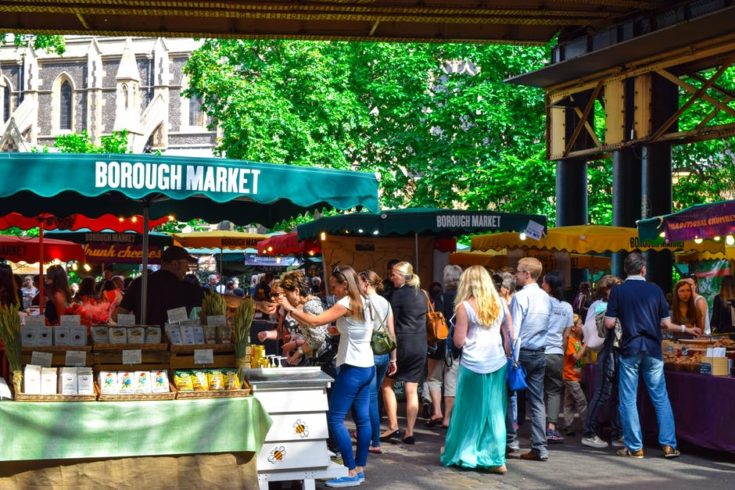Disclosure: This post may contain affiliate links, meaning we get a commission if you decide to make a purchase through our links, at no cost to you. Please read our disclosure for more info.
Last Updated on January 20, 2024 by Work In My Pajamas

Entrepreneurs always have their eye out for an opportunity to cater to a new audience, to put their skills to use and, of course, to ultimately make money.
For many, that means turning to craftsmanship, and depending on what you make or produce, a farmers market can be the perfect location to sell your goods.
If you’ve been to a farmers market recently, you know that fresh produce is not the only thing for sale. Often there are locally-made soaps, candles and lotions for sale, as well as jams, butters and breads. Planning to sell at a farmers market can reduce your overall overhead costs and give you access to buyers who might otherwise not find your website.
But getting started at a farmers market takes time, so it’s best to start now!
In This Post:
Securing a Coveted Vendor Spot at a Farmers Market
Markets are typically held on different days in different locations around town. This means the same vendors can sell at one venue on Thursday and another one on Saturday. But space for a market stall at each location is limited, and you’ll need to pitch your business to the market organizer, get on a waiting list and perhaps even make a down-payment to hold a spot.
Start researching venues now and get to know what each organizer requires of the vendors.
Get All Your Legal Ducks in a Row
Farmers markets are governed by local laws, which means it’s difficult to list out the legal requirements for setting up a booth and selling your wares. The market organizer should be able to give you an idea of what is required, such as:
- Local vending permits
- Certification by health inspectors
- A history of your previous vending experience, showing compliance with laws throughout your career as a vendor
Paperwork can take time to file and be approved, so once you know what you need to do, don’t delay in getting the ball rolling.
Determine What You Need at Your Stall
Your first day at the farmers market will surely be a learning experience, but to avoid a major headache, spend some time touring the market, introducing yourself to the vendors and checking out the way they set up their area.
Some markets may supply tables. Others expect you to bring absolutely everything you need.
Consider the following:
- Two or three folding tables to clearly mark your space
- A canopy tent for protection from the weather
- Chairs for you and your personnel
- Table cloths
- Signs with your business’s name, product list and prices
- A secure cash box
- A point of sale (POS) app to accept credit card payments – grocery or restaurant POS systems work well for farmers market vendors
- Business cards with your web address or social media handles
- A reasonable amount of your product to sell – you don’t want to run out within two hours, but you also don’t want to go through the trouble of setting up and taking down your entire stock each time
- A helper to assist you when you need a break or when traffic picks up
Remember, you don’t have to be a farmer to sell at a farmers market! If you have a neat product, take advantage of this local exhibition!


